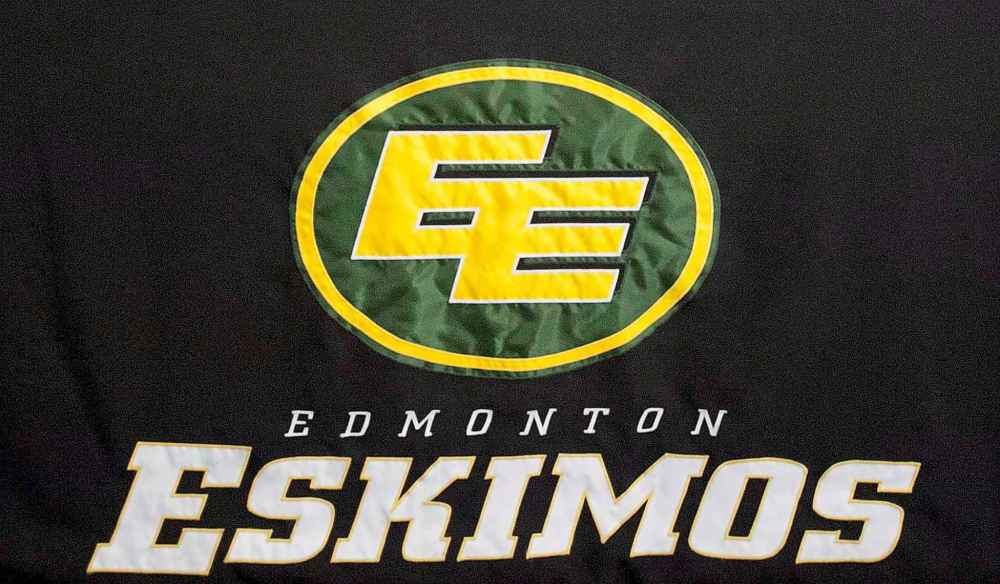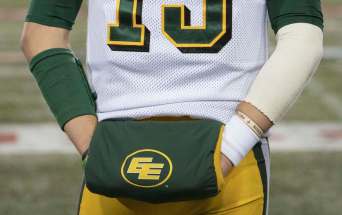CFL team fumbles on reconciliation
Read this article for free:
or
Already have an account? Log in here »
To continue reading, please subscribe:
Monthly Digital Subscription
$0 for the first 4 weeks*
- Enjoy unlimited reading on winnipegfreepress.com
- Read the E-Edition, our digital replica newspaper
- Access News Break, our award-winning app
- Play interactive puzzles
*No charge for 4 weeks then price increases to the regular rate of $19.00 plus GST every four weeks. Offer available to new and qualified returning subscribers only. Cancel any time.
Monthly Digital Subscription
$4.75/week*
- Enjoy unlimited reading on winnipegfreepress.com
- Read the E-Edition, our digital replica newspaper
- Access News Break, our award-winning app
- Play interactive puzzles
*Billed as $19 plus GST every four weeks. Cancel any time.
To continue reading, please subscribe:
Add Free Press access to your Brandon Sun subscription for only an additional
$1 for the first 4 weeks*
*Your next subscription payment will increase by $1.00 and you will be charged $16.99 plus GST for four weeks. After four weeks, your payment will increase to $23.99 plus GST every four weeks.
Read unlimited articles for free today:
or
Already have an account? Log in here »
Hey there, time traveller!
This article was published 20/02/2020 (2121 days ago), so information in it may no longer be current.
The Canadian Football League season doesn’t kick off until June, but the Edmonton Eskimos have already fumbled a golden opportunity.
Late last week, the Eskimos announced the team would keep its controversial name, blasted by some critics as derogatory, after a year of research and meetings with Inuit leaders produced “no consensus” on changing it.

“The consistent feedback was a desire for more engagement with the club,” the team said in a news release. “There were a range of views regarding the club’s name but no consensus emerged to support a name change. The club has therefore decided to retain its name.”
It was an opportunity for the team to demonstrate leadership on a sensitive issue — and take a significant step on the long road to reconciliation — but it chose instead to maintain a status quo that has become unacceptable to Indigenous groups.
Although American Inuit continue to use the word “Eskimo,” residents of Canada’s North left that name behind long ago, opting instead to refer to themselves as Inuit (which means “the people” in Inuktut), as well as Inuit-Métis and Innu.
The word at the centre of the debate is fraught with controversy. It was a name given to the Inuit by non-Inuit people and colonizers, and was thought to mean “eaters of raw meat.” Others believe “Eskimo” comes from an Ojibwe word meaning “to net snowshoes,” referring to the process of weaving or netting sinew around a wood frame to create snowshoes.
Like many professional sports teams around North America — football’s Kansas City Chiefs and Washington Redskins, the NHL’s Chicago Blackhawks and baseball’s Cleveland Indians and Atlanta Braves — Edmonton has been caught up in the growing debate over team names viewed as racist.
The simmering debate over Edmonton’s moniker erupted in a full boil when Natan Obed — president of Canada’s national Inuit organization, the Inuit Tapiriit Kanatami — thrust it into the national spotlight during Edmonton’s 2015 Grey Cup championship run.
“It isn’t right for any team to be named after an ethnic group,” Obed said two days before the Eskimos beat the Ottawa Redblacks to claim the CFL title. “This is part of the past. It isn’t part of the present and shouldn’t be part of the future.”
That same month, the head of Canada’s Truth and Reconciliation Commission called for an end to sports teams caricaturing Indigenous people. “I don’t think there is any (other) cultural group that is subject to that any more,” Justice Murray Sinclair told The Canadian Press.

The controversy intensified just before the 2015 Grey Cup when the Ottawa Citizen published an editorial calling on Edmonton to change the team name because it is disrespectful.
“If ever anything could be called ‘cultural appropriation,’ it’s the widespread caricaturing of Indigenous people in the world of North American professional sports,” the editorial stated. “The practice of naming teams after Indigenous groups stems from a history of fetishizing Indigenous people as noble savages, and of mocking the traditions and symbols of colonized peoples.”
It may be open to discussion whether the term “Eskimos” is racist, but there is no debate about whether some Indigenous organizations and leaders find it disrespectful, and theirs is the voice that truly matters.
Some diehard supporters would rage against changing a name steeped in history, but it’s unlikely they would stop rooting for their team.
But in a nation where Indigenous people are mounting blockades because their voices have been ignored, changing the name might finally open the door to a new generation of enlightened fans.








